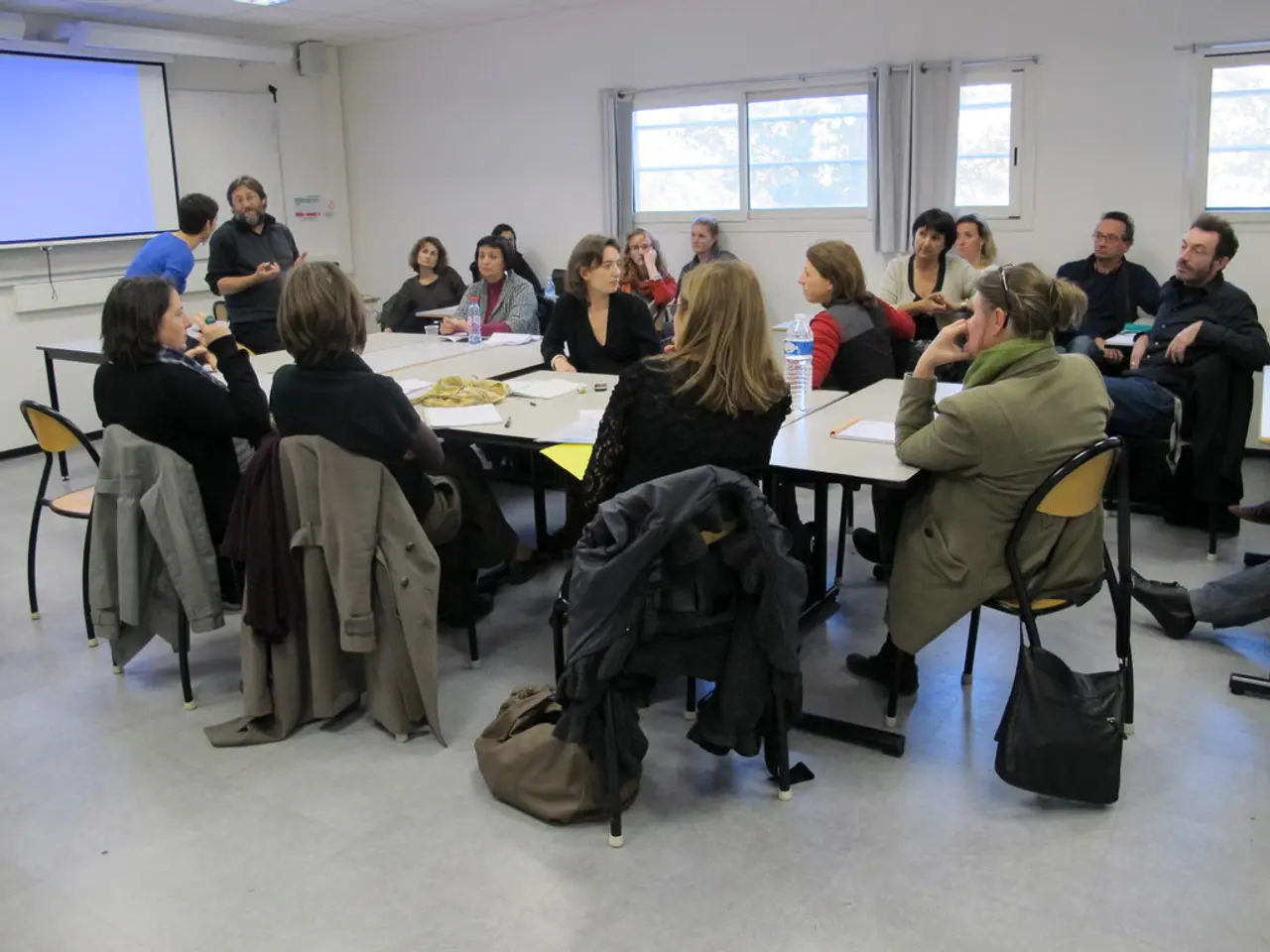Struggling with Social Anxiety? Recognize These Symptoms and Discover Ways to Cope Effectively.
Social anxiety can significantly impact a person's ability to lead a fulfilling life, causing them to avoid social situations, miss out on job opportunities, or experience difficulties in relationships. This condition, known as social anxiety disorder, can also lead to feelings of loneliness or isolation due to challenges in forming and maintaining relationships.
The causes of social anxiety disorder are not fully understood, but research suggests that it can be caused by a combination of biological, environmental, and psychological factors. Environmental factors such as childhood trauma, abuse, neglect, and a stressful or unstable home environment can contribute to its development.
Effective treatment options for social anxiety disorder primarily include Cognitive Behavioral Therapy (CBT) and medication, often used in combination, alongside lifestyle changes and supportive therapies.
Cognitive Behavioral Therapy (CBT) is considered the most effective and evidence-based psychotherapy for social anxiety disorder. It involves two key components: cognitive therapy, which helps identify, challenge, and neutralize unhelpful thoughts that trigger social anxiety, and exposure therapy, which gradually confronts feared social situations to reduce avoidance and anxiety responses. Group CBT is especially beneficial, providing social skills training and peer support. Homework assignments can reinforce learning between sessions.
Medication options prescribed for social anxiety disorder typically include Selective Serotonin Reuptake Inhibitors (SSRIs), Serotonin-norepinephrine reuptake inhibitors (SNRIs), beta-blockers, and benzodiazepines. SSRIs are first-line pharmacological treatments, while benzodiazepines should be used with caution due to dependency risks.
Lifestyle modifications and self-help techniques complement therapy and medication, including regular physical exercise, a nutritious diet, adequate sleep, mindfulness meditation, and building self-esteem through practicing skills or personal strengths. Relaxation techniques, such as diaphragmatic breathing and progressive muscle relaxation, and support groups offering shared experiences and empowerment can also be beneficial.
Early intervention for social anxiety is crucial for effective treatment, and progress takes time. Overcoming social anxiety is a journey, and coping strategies such as practicing self-care, setting realistic goals, and engaging in activities enjoyed can be helpful for managing symptoms in the long term.
If you are struggling with social anxiety, seeking help is essential. Our expert providers can work with you to create a customized treatment plan for social anxiety. Call us at 844-867-8444 to explore your social anxiety treatment options.
[1] National Institute of Mental Health. (2019). Social Anxiety Disorder. Retrieved from https://www.nimh.nih.gov/health/topics/social-anxiety-disorder/index.shtml [2] American Psychiatric Association. (2013). Practice Guideline for the Treatment of Patients With Social Anxiety Disorder. Retrieved from https://www.psychiatry.org/psychiatrists/practice/dsm/dsm-5/social-anxiety-disorder [3] International OCD Foundation. (n.d.). Social Anxiety Disorder. Retrieved from https://iocdf.org/about-ocd/ocd-facts/social-anxiety-disorder/ [4] Anxiety and Depression Association of America. (n.d.). Social Anxiety Disorder. Retrieved from https://adaa.org/understanding-anxiety/social-anxiety-disorder
- Social anxiety disorder can be attributed to a combination of biological, environmental, and psychological factors, including childhood trauma, abuse, or a stressful home environment, which is supported by research in health-and-wellness and mental-health studies.
- Effective treatments for social anxiety disorder often involve evidence-based psychotherapies like Cognitive Behavioral Therapy (CBT) and medication, as supported by the National Institute of Mental Health, the American Psychiatric Association, the International OCD Foundation, and the Anxiety and Depression Association of America. CBT, in particular, emphasizes cognitive therapy and exposure therapy, and can be beneficial when paired with lifestyle changes, self-help techniques, and support groups for mental health improvement.




